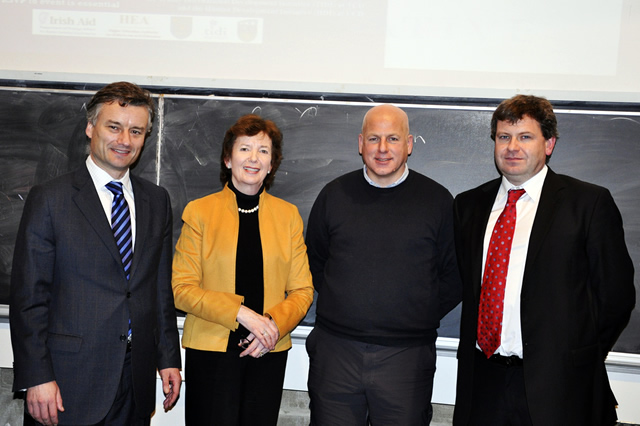Speaking in Trinity College Dublin on the topic of Climate Justice and Food Security, Mary Robinson said the poor and the vulnerable who are often forced to live in marginal areas are those most affected by climate change.
Speaking in Trinity College Dublin on the topic of Climate Justice and Food Security, Mary Robinson said the poor and the vulnerable who are often forced to live in marginal areas are those most affected by climate change.
Download podcast of Mary Robinson’s remarks [Right-click on link and choose ‘save link/target as…]
“The more recent scenes from the Horn of Africa brought home the terrible vulnerability of the people living there to weather and climate shocks,” she said.
“It reinforced the imperative of sustaining efforts and attention on food and nutrition security, and the urgency of tackling the problem.”
Dr Robinson told the audience at the joint Trinity and University College Dublin lecture that food prices are predicted to continue rising even as much agricultural land in many African countries will be lost due to climate change.
These changes are especially negative for women in developing countries according to Dr Robinson as she said “between 60 and 80 per cent of food … is produced by women who own less than two per cent of all land in Africa”.
“Agriculture, particularly rain-fed agriculture, is vulnerable to the effects of climate change. Changes in the planting season and difficulties in preparing grazing or water for livestock are already challenges that farmers and herders face,” she said.
Looking to next year, she said there are “clear parallels” between the Durban COP17 conference and the UN EarthSummit 2012 to be held in Brazil. Finding a way to link the financial potential of the green economy to fighting climate change is vital according to Dr Robinson.


